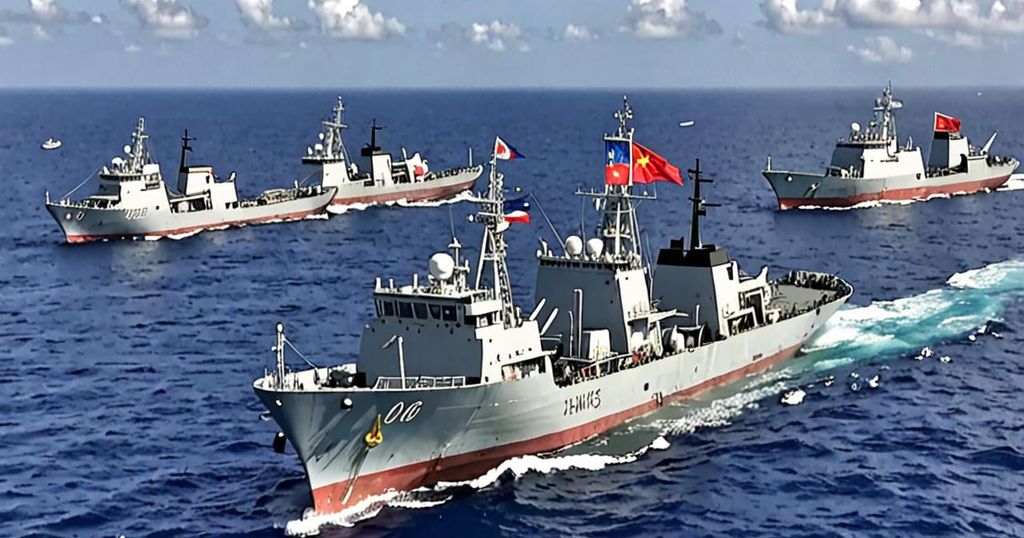President Ferdinand Marcos Jr. of the Philippines has articulated the country’s stance on engaging in discussions with China regarding the South China Sea while remaining steadfast in protecting its sovereignty and maritime rights. He has expressed his dedication to collaborating with Southeast Asian nations and China to establish a long-overdue code of conduct (COC) in the South China Sea, rooted in international law.
During a visit to Australia, Marcos emphasized the critical nature of these efforts in managing tensions and ensuring the success of COC negotiations. He reiterated the Philippines’ unwavering commitment to not cede any of its territories to a foreign power, underscoring the importance of a conducive environment for fruitful COC negotiations.
Since assuming office in 2022, Marcos has navigated strained relations with China, marked by recurrent disputes over atolls and reefs in the South China Sea. This dynamic has coincided with Manila’s efforts to strengthen its defense ties with the United States. The president underscored that the alliance with the U.S. was a deliberate decision of the Philippines and continues to be strengthened through its own volition.
Departing from the pro-China stance of his predecessor Rodrigo Duterte, Marcos has openly accused Beijing of aggression in the Philippines’ exclusive economic zone, citing instances of the use of water cannons, military-grade lasers, and collision tactics to repel Philippine vessels. Under his leadership, the Philippines has expanded the number of its bases accessible to U.S. forces, including three new sites facing Taiwan, which China claims as its own.
While U.S.-Philippine military exercises have been routine for decades, they have evolved to encompass joint air and sea patrols over the South China Sea and in close proximity to Taiwan. China has perceived these actions as disruptive and provocative. Despite China’s sovereignty claims over most of the South China Sea, a 2016 arbitration ruling concluded that its claim had no legal basis under international law.
Marcos has underscored the imperative of not allowing the superpower rivalry between the U.S. and China to overshadow the legitimate maritime interests of other countries in the region. He has emphasized the need to address aggressive, unilateral, illegal, and unlawful actions as assaults on the principles of international law and the United Nations Charter.
Additionally, Marcos disclosed that he had approved the third phase of the military’s acquisition plan to support the country’s shift from focusing on internal defense to external defense. He stressed the necessity for the country’s forces to ensure unimpeded and peaceful exploration and exploitation of natural resources within its jurisdiction, including its exclusive economic zone.
The president’s statements, made during his visit to Australia, underscore the Philippines’ commitment to safeguarding its sovereignty and maritime interests amidst regional challenges and disputes. By leveraging international law and engaging with neighboring countries and superpowers, the Philippines aims to ensure stability and security in the South China Sea and the broader region.

Leave a Reply